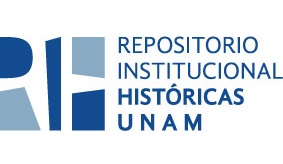Buscar
Mostrando ítems 1-10 de 36
Libro
La filosofía náhuatl estudiada en sus fuentes
(Universidad Nacional Autónoma de México. Instituto de Investigaciones Históricas, 2017)
"Sesenta años se cumplen de la aparición, en 1956, de La filosofía náhuatl estudiada en sus fuentes. Bien lo anticipó en su prólogo Ángel María Garibay K.: “Un hecho es indudable. Este libro no caerá en el olvido”. Once ...
Artículo
Desde el punto de vista del comensal: alimento y perspectiva en la narrativa nahua
(Instituto de Investigaciones Históricas, Universidad Nacional Autónoma de México, 2017)
While anthropology has attempted to analyze the point of view of the native, the Nahua narrative has been particularly interested in discerning the perspective of the table companion, whose points of view play a relevant ...
Artículo
Combatir bailando: danza y guerra en el Altiplano prehispánico
(Instituto de Investigaciones Históricas, Universidad Nacional Autónoma de México, 2017)
This article studies the strong link between dance and war among the ancient Nahuas. Dance and military practices interwove, both on the ritual stage and on the battlefield. The pictographic manuscripts produced before ...
Artículo
Miguel León-Portilla, El México antiguo en la historia universal, edición de Juan José Salazar, Toluca, Fondo Editorial Estado de México, 2015, 224 p.
(Instituto de Investigaciones Históricas, Universidad Nacional Autónoma de México, 2017)
Review of the book El México antiguo en la historia universal by Miguel León-Portilla, edited by Juan José Salazar. The book compiles essays by the author on the civilizational value and cultural history of pre-Hispanic ...
Artículo
Guilhem Olivier, Cacería, sacrificio y poder en Mesoamérica. Tras las huellas de Mixcóatl, “Serpiente de Nube”, México, Universidad Nacional Autónoma de México, Instituto de Investigaciones Históricas/Fondo de Cultura Económica-Centro de Estudios Mexicanos y Centroamericanos, 2015, 744 p.
(Instituto de Investigaciones Históricas, Universidad Nacional Autónoma de México, 2017)
Critical review of Cacería, sacrificio y poder en Mesoamérica by Guilhem Olivier, analyzing the figure of Mixcóatl as a symbolic axis of ritual practices, power structures, and worldviews in Mesoamerica. The author combines ...
Artículo
Los merecidos por el sacrificio de los dioses
(Instituto de Investigaciones Históricas, Universidad Nacional Autónoma de México, 2017)
Miguel León-Portilla examines how the ancient Nahuas conceptualized the human being as a "macehual"—a person deserved through the sacrifice of the gods. Drawing on colonial Nahuatl texts and the interpretations of friars ...
Artículo
Jaime Lara, City, Temple, Stage: Eschatological Architecture and Liturgical Theatrics in New Spain, Notre Dame, University of Notre Dame Press, 2004, 299 p.
(Instituto de Investigaciones Históricas, Universidad Nacional Autónoma de México, 2017)
Miguel León-Portilla reviews Jaime Lara’s City, Temple, Stage, analyzing the inculturation of Christianity in New Spain through architecture, liturgy, and theatrical expressions. The review highlights the interpretive and ...
Artículo
Conversion and Conservation: Mexica Featherwork, the Miraculous, and Early Modern European Practices of Collecting
(Instituto de Investigaciones Históricas, Universidad Nacional Autónoma de México, 2017)
This essay investigates the impact of the Encounter of America, particularly of the Franciscan missions, in the cultural production of New Spain. Specifically, it investigates the twofold power of Christian-Mexica feather ...
Artículo
¿Miel o sangre? Nuevas problemáticas acerca de la elaboración de las efigies de tzoalli de las divinidades nahuas
(Instituto de Investigaciones Históricas, Universidad Nacional Autónoma de México, 2017)
In the ritual cycle of the solar and divinatory calendars, the ancient Nahuas created edible effigies of their gods using amaranth dough mixed with maize and honey, known as tzoalli. This article returns to the tzoalli ...
Artículo
Los dos himnos en honor de Huitzilopochtli y sus implicaciones rituales, históricas y sociales
(Instituto de Investigaciones Históricas, Universidad Nacional Autónoma de México, 2017)
The twenty hymns in honor of the Aztec gods, recorded from oral tradition by Bernardino de Sahagún during the first half century after the Spanish conquest, have been studied chiefly by linguists and historians. In general, ...












